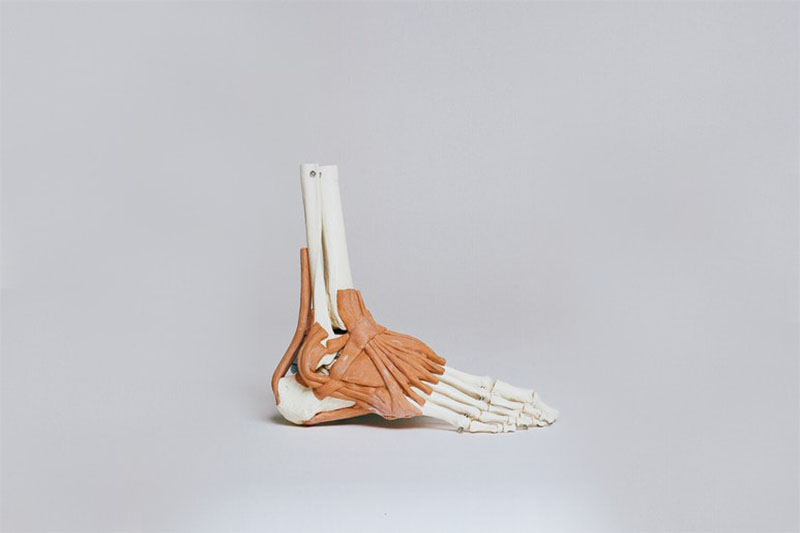
If you’ve ever had a bone fracture or had to get burr holes, I guarantee you’d wish you’d known this product much sooner.
Founded in late 2003, by Dr Teoh Swee Hin, Osteopore is a Singaporean medical device manufacturer specialising in 3D printed biomimetic, bioresorbable implants. The implants are used to heal bone fractures and/or cover trephination burr holes in neurosurgery. Clinical trials show that the implant encourages bone growth and remodelling.
Not a Fad, But a First
In our interview with Dr Lim, the Chief Technology Officer of Osteopore, shared that the impetus behind 3D printing the implants.
“The reason why we went into 3D printing was because we wanted to achieve a certain microstructure that resembles bone. And the only manufacturing tool that allowed us to do that was 3D printing. That was why we went into 3D, not because it was the hype – because it wasn’t 20 years ago.”
Thanks to 3D printing, the team was able to create a biomimetic structure, or a structure that looks like bone. In turn, blood vessels and tissue can go into scaffolds and not just around it, critical in the healing process. Since the implant populates the entire space inside the scaffold, over time, the scaffold will be dissolved into carbon dioxide and water within the body. After two years, the patient will no longer have the implant. What is left are their own bone and tissue structures.
The innovative technology behind Osteopore’s products make the implants the first of its kind in the world.
“I think it is the only technology that allows our patients to heal this way,” said Dr Lim.
Certified for More
For products with a foreseeably huge demand, relevant authorities have steadily been giving it their mark of approval.
“We achieved our US FDA clearance in 2006…We have been teamed up with the European Authorities since 2009. Our products are approved in more than 12 other countries around the world. In terms of hospital outreach, we have about 80 to 100 hospitals globally that use our product on a routine basis,” said Dr Lim.
This is a major feat for a homegrown MedTech company.
“All the technology is developed in Singapore. There was no foreign involvement in our technology… It is very rare for a high-risk device like ours to be operating out of Singapore and be global at the same time. Not like your traditional US or maybe Europe that has an office here. It is the other way around actually,” beamed Dr Lim.
The Need for Intellectual Property in MedTech
Truly something to be proud of, the company is cognisant of the need for building a brand and credibility in the medical industry through intellectual property (IP).
According to Dr Lim, brand building through IP is only the first step. What’s more important in the medical device field is to create something which is trustworthy. Both the product and the technology underpinning it must be able to inspire trust. This according to Dr Lim, is what makes brand building more sustainable and stable.
“Being able to protect the company’s technology with suitable IP allows us to create this brand that our products are safe for use, reliable – it gives a consistent outcome,” states the CTO.
Thus, there should be a more all-encompassing view of IP that goes beyond just patents, trademarks and trade secrets.
“As long as anyone uses Osteopore, they would understand where we are from, the technologies that we have, that we are a trust worthy partner for them. That gives confidence not just to the hospital, but also to the patients and the surgeons that receive the implants.”
A New Diagnosis for IP in Industry 4.0?
When asked if the disruptions in Industry 4.0 are changing how MedTech companies understand IP rights, Dr Lim was not short of conviction.
“Yes, of course, especially if we are looking at delivering devices at the point of care.”
Traditionally, there would be a couple manufacturing locations to distribute medical devices, especially for implants. Deliveries need to be efficient and cost effective, without unintentionally tampering with the product. Moreover, individual products must pass quality approval before they are distributed.
Dr Lim thinks these processes will look different in Industry 4.0.
“When you have Industry 4.0, we are trying to do a little “Grab” or “Uber”, which is to supply on demand. The intellectual property rights associated with this business model would then change drastically. Because now you are going to be sending information through a digital network into a remote location. And the intellectual property rights which are associated with this business model will actually be associated with the information that is [sent] across.”
The data and the process by which it is transmitted is most valuable. Utilising a cloud-based system to improve the accuracy of the supply chain manufacturing and logistics is key. Protecting data is equally as important, if not more valuable than the business processes it would seem.
Referencing this, Dr Lim says, “I think the IP is all there. That is why it has changed a little bit from the traditional understanding of IP being something which you hold very closely to the company or in secrecy within the company.”
Whatever Industry 4.0 brings to the MedTech field, Dr Lim and his team are relooking how to restructure the company’s IP protection and improve the technology behind their product.
“We continue to work with universities in Singapore to develop the technology…We are proud to be leading the world in this.”
















